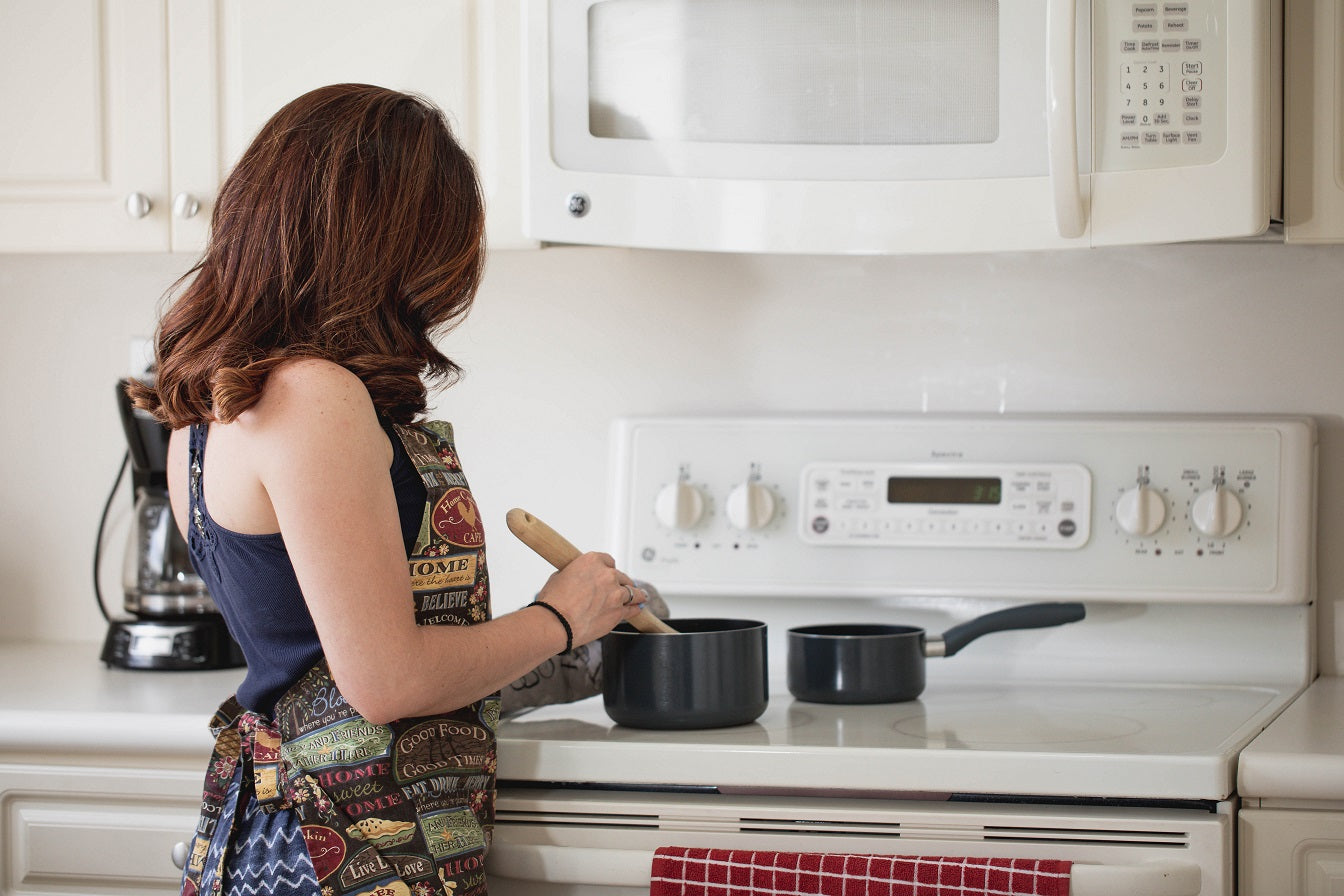Doing more cooking at home is a very popular new year’s resolution, and for good reason. Cooking your own food is far healthier than relying on convenience foods, takeout, and restaurants. Home-cooked meals tend to contain fewer calories, less fat and sodium, and fewer additives than their pre-packaged or restaurant counterparts.
You’ll also save money. Cooking at home costs a fraction of what you’d spend on having your meals prepared for you. If you shop mindfully, switching to home cooking can easily halve your weekly food bill.
Finally, cooking can be fun and rewarding. Some people enjoy a sense of mindfulness and calm when they cook, as it requires you to be highly present in the moment, while others share cooking with their partner or children and view this as valuable family time.
But if you’ve never learned to cook, you might not know where to start. Here are six easy steps to help you.
Be Realistic

If you live a busy life, as most of us do, you’re probably not going to be cooking gourmet three-course meals every night. Instead of setting lofty ambitions and ending up feeling as though you have failed, set realistic goals so that you can enjoy a sense of accomplishment when you meet them.
How about starting with just cooking two or three meals a week from scratch and building up from there? Or committing to learning one new kitchen skill or simple recipe each week?
Learn the Basics

You have to walk before you can run, as the saying goes. In other words, you need to master the basics in the kitchen before you can start whipping up impressive feasts.
There are several ways you can learn the basics of cooking, and different methods will work for different people. For book learners, a beginner-friendly cookbook will guide you through your first steps (here’s a handy list of recommended books.) If you prefer to learn from someone else, ask a more experienced friend or family member to teach you or enroll in a face-to-face short course.
You can also learn from online content such as videos. The Youtube channels Home Cook Basics and Epicurious are treasure-troves of short, easy to follow instructional and informational videos.
Get Equipped

You don’t need to go out and spend a fortune on fancy kitchen gadgets to get started with home cooking. However, you will need a few basic and versatile items, most of which can be purchased on a budget. Even though you might need to invest some money upfront to equip your kitchen, you’ll soon recoup that money in what you save by cooking at home.
We recommend starting with the following:
- Saucepans (1 large and 1 small is ideal)
- Frying pan
- Kitchen scale
- Measuring jug
- Mixing bowl
- Knives (1 large and 1 small)
- Wooden or silicone spoon
- Cutting board
- Colander
- Sieve
- Can opener
- Vegetable peeler
- Grater
- Hand blender
It’s also a good idea to stock up on store cupboard ingredients such as salt, pepper, cooking oil, herbs and spices, dried pasta, and cans of tomatoes.
Plan Your Meals

If you’ve ever found yourself staring at the shelves in the grocery store not knowing what to buy, it’s likely because you have failed to plan. Sit down at the beginning of the week (or wherever you do your food shopping), plan your meals for the week ahead, and make a shopping list.
Don't forget to factor in leftovers, quick meals for busy days, and snacks between meals.
You can involve your family in meal planning, too. Ask them for their input, suggestions, and help with list-making, shopping, and cooking. This gives everyone a sense of ownership over what you will all eat.
Get Inspired

Try flicking through recipe books or using online resources to gather inspiration and choose recipes you’d like to try. Think about dishes you have enjoyed in restaurants or regularly order from your favorite takeout places. Can you recreate something similar at home?
You could also choose to focus on a specific cuisine (such as Italian food or Chinese food), try a new ingredient (such as a vegetable or spice) each week and build recipes around those, or work your way through a particular book. The choice is yours and the possibilities are endless.
Experiment and Make Mistakes

Even for experienced chefs, things sometimes go wrong in the kitchen. We’ve all burned a sauce, cooked enough rice to feed the proverbial five thousand instead of a family of four, or forgotten to buy a crucial ingredient and had to improvise.
When something goes wrong, try not to panic. Very few kitchen disasters are completely unsalvageable and making mistakes is how we learn. You may even find yourself able to laugh about it eventually!
Happy cooking.
Read more

If, like millions of people across the world, you’ve returned to work this week after the Christmas and New Year break, you might find yourself feeling tired and sluggish. This is normal. The holid...

“Blue Monday” usually falls on the third Monday in January (Monday January 16 this year) and is said to be the most depressing day of the year. As the festivities of the holiday period recede into ...






Leave a comment
All comments are moderated before being published.
This site is protected by hCaptcha and the hCaptcha Privacy Policy and Terms of Service apply.